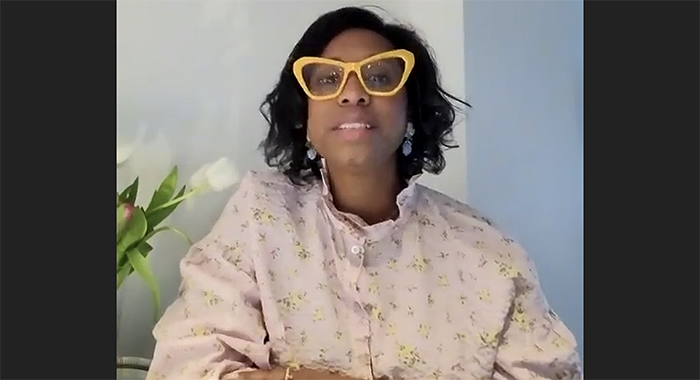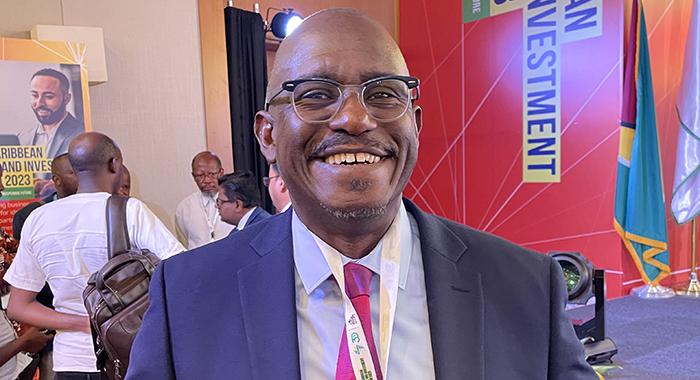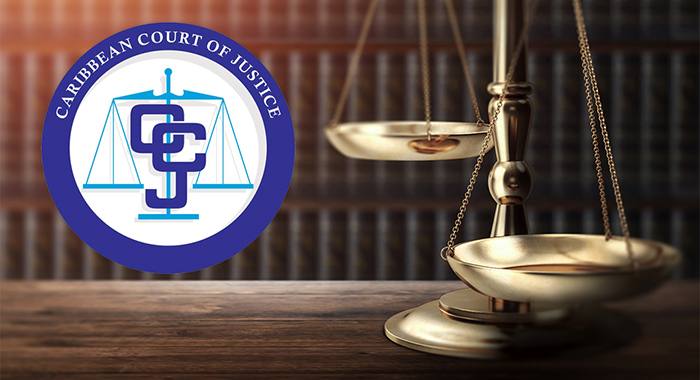By Kenton X. Chance
ST. GEORGE’S, Grenada — The president of the British American Insurance Co. Ltd and Colonial Life Insurance Co. Ltd. Policy Holders Group (BACOL) has expressed cautious optimism as the Caribbean Court of Justice (CCJ) prepares to hear a lawsuit against the Government of Trinidad and Tobago over the 2009 collapse of the insurance giants.
“Look, when you go to court, you’re placing your fate and, in some sense, your destiny, in the hands of men and women who are mortal,” Patrick Antoine told a press conference on Wednesday, ahead of the trial before the Trinidad-based court next week.
BACOL says that after 15 years of perseverance, it has “significantly advanced the pursuit of financial justice” for policyholders in Antigua and Barbuda, Dominica, Grenada, Montserrat, St. Kitts and Nevis, St. Lucia and St. Vincent and the Grenadines who have “suffered extreme financial loss and hardship” after the 2009 collapse of the British American Insurance Co. Ltd. (BAICO).
The company’s failure resulted in losses of over EC$800,000,000 to businesses and individuals, BACOL said.
The court would hear arguments related to BAICO policyholders, but Antoine said that once the court determines those matters, “it is going to have an immediate and identical application to the CLICO case because it’s the same matters … and the same basis or cause of action that we are going after on the CLICO matters for CLICO policyholders”.
He said there was, therefore, no point in trying to launch two cases at the same time.
“I think the witnesses will tell you all the hoops we’ve had to go through just in terms of being able to get all the evidentiary and supporting material, not to mention the material that does not directly relate to the witnesses.”
BACOL said that come Monday and Tuesday, lawyers representing its policyholders will make representation to CCJ “in this historic quest to obtain equitable treatment” for the close to 2,000 registered policyholders across the Organisation of Eastern Caribbean States.
Antoine noted that the case will be brought in the original jurisdiction of the CCJ, which interprets the Revised Treaty of Chaguaramas, which established the Caribbean Community (CARICOM) Single Market and Economy (CSME).
“So, there is no right of appeal because this is, in fact, an international court and it’s the final court,” he said.
“And as with any other case, we can only control the factors that we can, which is we’ve really laboured at bringing … the most complex case that we’ve had in the community involving six different jurisdictions together,” Antoine said.
He said this is the first group claim that has ever been brought before the CCJ.

Speaking at the same press conference, KL Menns, a competition, trade regulation and regional integration treaties lawyer, said the case concerns “a pure question of fairness, discrimination and levelling the playing field for … Caribbean Community consumers.”
She said the CCJ will be asked to rule on two main issues.
One is whether the Government of Trinidad and Tobago “effectively, factually favoured … nationals of the Republic of Trinidad and Tobago, and by the deliberate use and expropriation of the CLF group assets to benefit the Trinidadian policyholders only, to compensate its policyholders only and to form a new business entity which benefited its policyholders only, it discriminated against the Grenadian and Antiguan policyholders”.
The other issues would be whether Port of Spain “created and engaged in a legislative process that was discriminatory and prejudicial in the sense that it forestalled and prevented non-nationals and other groups not already subject to their compensation scheme, …from bringing any claims against the government of Trinidad and Tobago …”
Antoine said the case is complex, adding that BACOL organised itself to give policyholders “the best representation because we are dealing with men and women who are mortals.
“Mortals sometimes err. Many times, more times than not, we say mortals get it right,” Antoine further said, referring to the judges who will hear the case. “So, the main risk is that the court of mortals don’t view the case in the way that we do.”
Antoine said that to mitigate against that, BACOL has brought “the best team, … the best information, … the best strategy and … the people together who have been most affected.
“In short, we approach the court knowing that the cause is just and when we line up all of those factors, I have to believe that the outcome is going to be favourable.”
Antoine said that while ultimately the court would decide, “… if this matter isn’t determined in accordance with how we deal with consumers across the community, it is certainly going to impact the way in which we have a successful CARICOM CSME”.
He noted that attempts at accelerating cross-border trade within CARICOM, adding that the outcome of the case will affect the pace at which the CMSE moves.
“And I think that fact can’t be lost on the court as well,” Antoine said, even as he reiterated that the parties have to leave the matter to the court to decide.
“So, I’ve given you a fulsome, frank, honest view of the way that we look at this. I am a policyholder as well. I feel the same way that you felt in terms of yes, we have some moments of trepidation which is why I think we put our all into this, every single one of us here in one way or another has been impacted,” he said.
“So yes, there are some risks, but I think they’re minimal compared to the great optimism that we feel about the case.”

He told the media that the case is only about policyholders, adding that BACOL has been approached by former employees of BAICO.
“There are other approaches that have been made to us now that we believe there is more information available to allow us to support other small cases. But the answer to the question is no; only policyholders at this stage.”
He said that BACOL is hoping that the court will rule by the third quarter of this year, adding that it is the first time the court would have to address issues on consumer protection that BACOL has raised.
“And so, knowing that it will form precedents for the way in which matters going forward will be determined on this premise, we know that they’re going to want to be cautious, which is why we’ve brought our best game on the law side to bear on this matter,” Antoine said.
He said that on the issue of compensation, BACOL has asked the court to rule that OECS policyholders “be treated equally”, adding that there are several variants to this.
One variant is if policyholders have gotten 13 cents on each dollar lost in the collapse of the company, the government of Trinidad and Tobago should be ordered to pay them the other 87 cents plus interest.
“Another variant is that we get the 87 cents plus interest and the interest could vary,” he said, adding, “Whether it’s going to be the sort of interest that’s applied in the domestic courts that we have is a matter that the court will have to decide.”
Antoine said there are all sorts of variants in terms of what the compensation could look like.
“Whether it is full compensation, having regard to the passage of time because the time value of money becomes important,” he said.
“People who got compensation in 2010 and 11 would have had the opportunity to benefit from that, while persons who were not compensated would not have had that benefit.
“So those matters are going to be taken duly into account so when that time comes,” he said, noting that he is an economist.
“…. so we would, obviously, run our models as we always do. And we will have every single variant as we definitely will. So you’re going to be in the best position to be represented both from the financial, economic side and also from the legal side.”
“So, we’re asking clearly for interest and we are asking that we be made whole and we’re asking that some element of cost also be covered because we have incurred an enormous amount of costs with this project, some of which our policyholders have offset but that’s been really a drop in the bucket. It’s been — think about it — it’s been lawyers since 2015,” he said.






